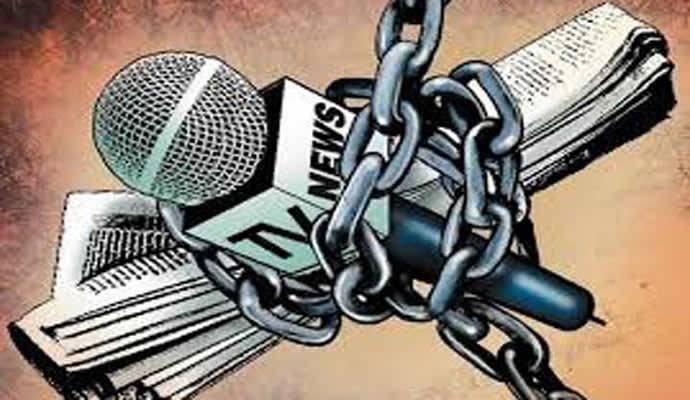The United Nations set aside every September 15 as International Democracy Day. According to the global body, “the day provides an opportunity to review the state of democracy in the world” and emphasizes that “only with the full participation of and support by the international community, national governing bodies, civil society and individuals, can the ideal of democracy be made into a reality to be enjoyed by everyone, everywhere.”
Most importantly, this year’s celebration targets at protecting press freedom for democracy. To say press freedom is to democracy what the salt is to the soup is stating the obvious. In fact, the United Nations Secretary General, Antonio Guiteres in declaring the day said, “without a free press, democracy cannot survive. Without freedom of expression, there is no freedom.”
These words are not just to sweeten the ear. They are backed legally. Article 19 of the Universal Declaration of Human Rights states, “Everyone has the right to freedom of opinion and expression; this right includes freedom to hold opinions without interference and to seek, receive and impart information and ideas through any media and regardless of frontiers.” In Nigeria, press freedom is guaranteed under section 22 of the 1999 Constitution where it stated inter alia, “The press, radio, television and other agencies of the mass media shall at all times be free to uphold the fundamental objectives contained in this Chapter and uphold the responsibility and accountability of the Government to the people”. Later in Section 39, in similarity to Article 19 of the Universal Declaration of Rights, the 1999 Constitution, emphatically provides that, “Every person shall be entitled to freedom of expression, including freedom to hold opinions and to receive and impart ideas and information without interference.”
However, in practice, it seems freedom of the press is more a topic that has been designed in Nigeria for only ceremonial purposes and nothing more. Where as several successive and incumbent governments at federal and sub-national levels had promised to protect press freedom and journalists, it seems on a daily basis, policies, codes, regulations and interferences are made to reduce the goal posts of press freedom. From pummeling media outfits with unconscionable fines, to regulating in places that practitioners should exercise professional independence, then to continuous arrests, detention and brutalisation of journalists performing their constitutional duties. These unhealthy ecosystem makes it difficult to practice. So many journalists have ended up self censoring themselves just to get home safe to their families and loved ones.
More than ever, there is need to back up the words to protect press freedom in Nigeria and other democracies with actions. The loopholes provided by the constitution that empower any government to crush on the media with restrictive laws that leech on “national interests” as reasons should be looked into critically. Stronger institutions and wider stakeholder involvement in making such laws that limit the media should be advocated. Any incumbent government should not exercise the absolute powers and prerogative to come up with such bills or fines.
The recent attempt to legislate on the social media and license online televisions by the Federal Government is also a step towards shrinking the media space. Through the provisions of the constitution, there is already legislation on the media practice which should be encompassing for the social media. Any further legislation will only be a target to crush independent reportage.
As the world celebrate International Democracy Day today, all stakeholders including civil society organizations and international nongovernmental organizations must give support to protect and preserve freedom of the press at all levels especially in third world countries where democracy is still at their nascency. As 2030, the year for the accomplishment of the Sustainable Development Goals, where democracy is the sixteenth goal, nears, it is important that speedy, goal-oriented and sincere actions are taken to guarantee press freedom.
In his message, the United Nations’ Secretary General, Mr Gutierres urges “governments, media organizations and technology companies everywhere to support the work of the media in speaking truth to power, exposing lies, and building strong, resilient institutions and societies.” The time to start is now or never.
Written by DAVID OKPOKWASILI





Comments are closed for this post.